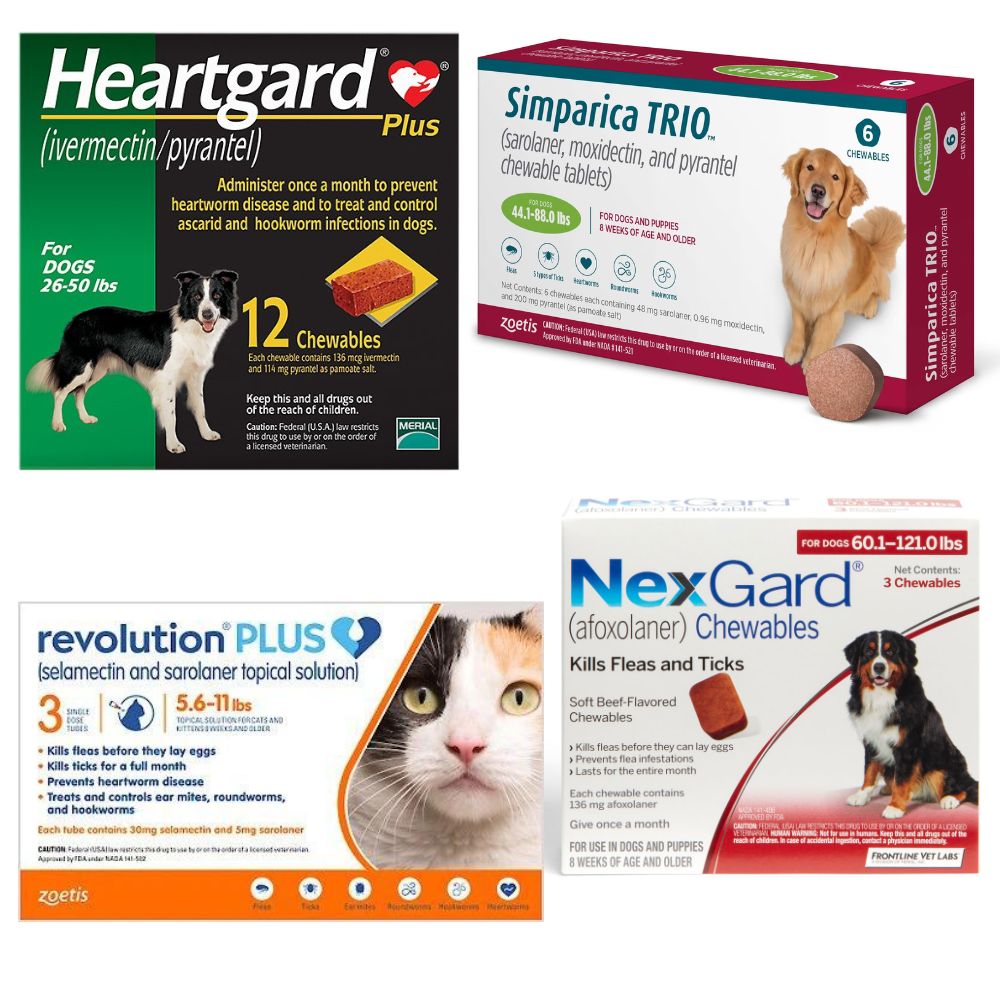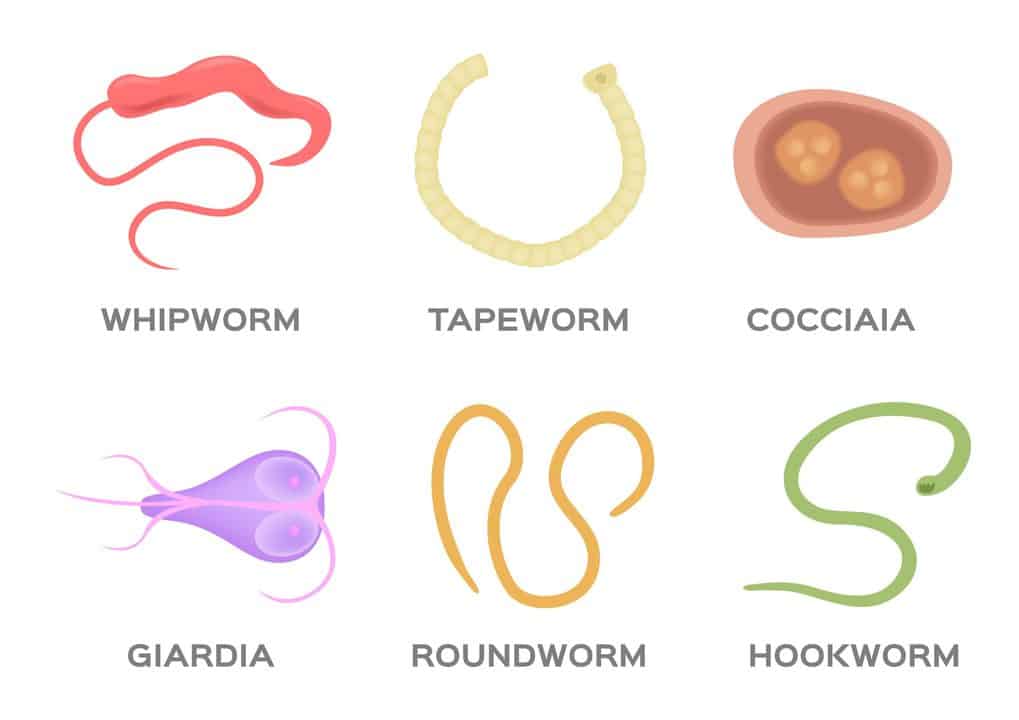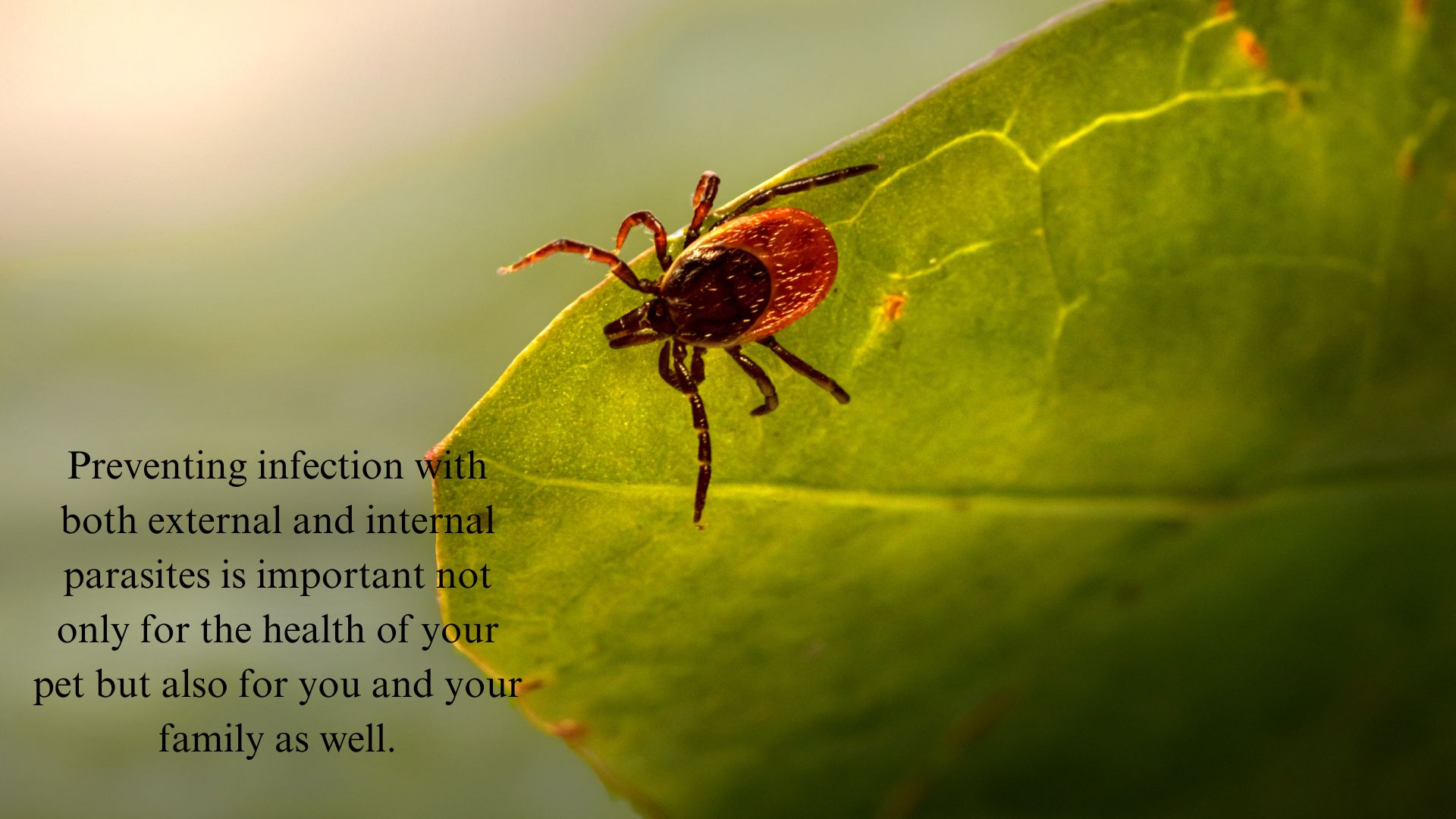How Does My Animal Get Fleas And Ticks?
Warmer weather is coming in Wisconsin…. Eventually! This means that many dog owners are starting to see ticks and think about tick borne disease. There are numerous species of ticks in this region of the US with the deer tick (Ixodes), the carrier of Lyme disease, being the most common. Although Lyme disease is the most common tick borne disease we see in this area, there are others such as Ehrlichia and Anaplasma. Thankfully, there are medications that prevent, repel, and/or kill ticks that are safe and effective in dogs. We recommend that all dogs be on flea/tick prevention monthly, all year round. Ticks are active whenever the temperature rises above 40 degrees, even during winter in Wisconsin. Fleas are always looking for a warm body to live on, even more so in the colder months, therefore dogs are always at risk for these external parasites. Our state has the perfect mixture of geography, climate and natural landscaping that fleas and ticks find very attractive.There are numerous safe and effective topical and oral prescription products available now.
At Hallett Veterinary Hospital, we always welcome questions about these preventative medications for your dog with the intent of always having your pet’s best interests at heart.
How Does Pet And Home Become Infested?
Your pet is both the home and food source for fleas and ticks. However, the majority of the flea population are found off the pet and around the home. Flea eggs are laid in the hair coat of your pet and fall off as your pet moves around your home. If your pet is not on a preventative (product to kill fleas and ticks), it is possible for them and possibly your home to develop a serious infestation within just a few short weeks.
If not prevented or treated, fleas and ticks can cause a variety of potential health issues, including:
- Skin irritation and infection
- Transmission of disease and illness to you and your pet
- Psychological issues from constant scratching
Fleas and ticks can also result in the transmission of disease to humans through petting and sharing a living space with a host animal. This is why it is critical that you are aware of the health dangers that fleas and ticks can pose. It is important that you take measures to reduce the risk of an infestation. With the right plan and products, flea and tick infestation is easily preventable. Our veterinarians are here to help you develop a flea and tick prevention program that will best suit your needs and lifestyle.
 Today’s Flea And Tick Control Products
Today’s Flea And Tick Control Products
Treating all pets with a monthly flea and tick control product is the best way to prevent issues with fleas and ticks. Fleas and ticks can survive very cold temperatures and can live indoors even in the winter. Therefore year round use of these products is recommended. Not all products are safe, especially those sold over the counter, therefore only use a product that has been recommended by your veterinarian.
How Worms In Dogs Are Contracted
At Hallett Veterinary Hospital, we love helping educate our clients about the best detection and prevention methods for worms. Some of the most common ways pet can contract worms include:
- Drinking contaminated milk from the mother during nursing
- Rolling in, sniffing, eating, stepping in or licking contaminated soil
- Consuming infected prey like rodents, birds, and reptiles
- Mosquito, flea and tick bites and ingestion
- Coming into contact with another infected animal
- Consuming or coming into contact with an infected animal’s feces or vomit
It is very important to understand that worms can cause severe medical issues and health conditions if left untreated. This is why we recommend discussing a dog worm preventive protocol with your veterinarian. You can learn how to spot some common symptoms of worms, and also how you can go about preventing the presence and spread of worms in and around your home and family, by reading on.
Types Of Worms
- Roundworms: Roundworms in dogs grow reach 3-5” long in adulthood, and they resemble a piece of wet spaghetti. Roundworms can be transmitted via the nursing process, by feeding on an infected animal, or by contact with the infected feces of another animal.
- Tapeworms: There are two main species of tapeworms (Taenia and Dipylidium) that can infect dogs and cats. Dogs and cats become infected with Taenia tapeworms by ingesting an infected rodent or rabbit. However, with Dipylidium, dogs and cats become infected by ingesting infected fleas. Therefore, flea control is very important in the prevention of certain tapeworms too!

- Hookworms: Hookworms reside primarily in the small intestine. They grow to approximately one inch in length and feed on the blood. They can cause life-threatening anemia, especially puppies. Hookworms are passed in the feces and can infect other animals and people too.
- Whipworms: Whipworms in dogs are about ¼” long and reside in the cecum and colon. Whipworms can cause severe damage to these organs, and are considered one of the most harmful dog worms in existence, causing severe diarrhea and sometimes even electrolyte imbalances. Whipworm infection is much less common in cats.
- Heartworms: Heartworms live in the heart and pulmonary arteries. They are transmitted by infected mosquitoes, which migrate throughout the body over about 6 months before finally coming to rest in the circulatory system. Heartworms are transmitted only from an infected mosquito’s bite, and not within or between species. They are preventable and treatable but can be fatal if not diagnosed and arrested before the advanced stages of infestation.
Symptoms Of Worms
It is important for owners to be on the lookout for symptoms of worms because, by the time your pet displays signs of infestation, he or she is usually already well along in the process. Some of the most common symptoms of worms are:
- Weight loss accompanied by a marked increase or decrease in appetite
- Distended abdomen, or ‘pot-bellied’ appearance
- Lethargy
- Vomiting
- Diarrhea/chronic soft stools
- Chronic coughing
- Dulling of coat and/or hair loss accompanied by skin irritation/inflammation
- Rubbing or dragging the hindquarters across the ground
- Visible presence of segments of tapeworms attached to the skin and fur around the anus/hindquarters area
- Visible presence of roundworms in infected stool, like tiny grains of rice
These symptoms of worms can also indicate other illnesses, so we recommend contacting your veterinarian immediately if you suspect or witness any of these symptoms in your canine or feline friend.
How Are Worms Treated?
Infection with worms are generally treatable, so long as they are diagnosed, arrested and treated before the onset of advanced stages of infestation. Your veterinarian can prescribe the proper deworming medication (anthelmintic), along with the appropriate administration protocol, based on the parasite and extent of the infestation.
We highly recommend consulting your veterinarian before purchasing or administering any over-the-counter or prescription medication for worms. Only your veterinarian can determine the severity of the infestation, and then order the proper number of treatments, as well as any other recommended instructions.
Are Worms A Danger To My Family?
Some types of worms, like roundworms and hookworms, are very dangerous to human beings, especially children who play in areas frequented by host animals like raccoons, dogs, and cats. Sandboxes and other dirt and sand-covered outdoor play areas routinely serve as makeshift litter boxes for animals infected with worms, and many other intestinal parasites. In fact, approximately 10,000 children per year are infected with parasitic worms, and conditions including blindness can occur in severe cases. However, we will now discuss several effective precautionary measures you can take to help keep you and your family free from worms in dogs.
Fortunately, various preventive measures can be taken to help ensure your pet and family members remain at a lower risk for contracting and spreading worms. One of the most effective ways of preventing infection is by administering a monthly veterinary recommended oral or topical preventative product. Please contact us regarding any product questions or recommendations.
If you suspect your pet has worms, it's essential to call us right away so that we can take care of the issue immediately.
If you need to order dewormer or flea, tick, or heartworm prevention, visit our online pharmacy!

